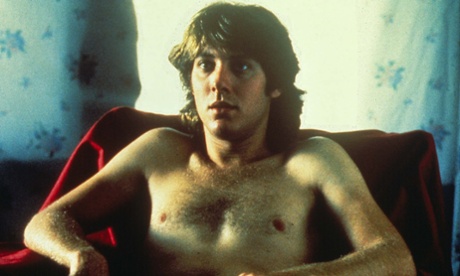
In May 1989 Rob Lowe became one of the first celebrities to become embroiled in a sex tape scandal. An apocryphal story says that a few days earlier, the then 22-year-old was at the Cannes film festival, leaving a screening of Steven Soderbergh’s sex, lies and videotape. In the film James Spader’s character, Graham, films women talking about their sexual desires. Graham isn’t on camera, but he coaxes them into explicit honesty, capturing their secrets on tape forever. Lowe, unaware of the storm about to break above his head, reportedly turned to a friend and said “Damn! Why can’t I get parts like that?”
Soderbergh’s film caught the moment. Conceived over a year and written in just over a week, it follows dulled housewife Ann (Andie MacDowell) and her scumbag husband, John (Peter Gallagher), as John has sex with Ann’s sister (Laura San Giacomo) and Ann falls for Graham, John’s college friend. Graham – a drifter who’s arrived in town with little more than his handycam and a box of tapes – is quiet and sweet, soulful and very sexy. John is a lawyer: slick, conniving and low. Yuppie America must have felt its ears burning.

Prizes are bunk until you give them to the film that changes the industry forever. Cannes didn’t make sex, lies and videotape (the film had already won the audience award at Sundance), but in giving the Palme d’Or to Soderbergh, Wim Wenders’ jury gave the new indie cinema the old school’s blessing. After the festival sex, lies and videotape would go on to make $24m at the box office, unheard of for a low budget film at the time. It reinvigorated Spader’s career, gave Andie MacDowell one (nothing’s perfect) and set Cliff Martinez, the composer of much of today’s best film music, off on his path. It made an arthouse star of Soderbergh and a heavyweight of his backer, Harvey Weinstein, whose studio, Miramax, would come to define quality American cinema over much of the next decade and, perhaps, help to destroy it too (read Indiewire’s excellent piece on sex, lies for more on its legacy).
Sex, lies had great company in the competition line-up of 1989. Spike Lee’s Do the Right Thing was there, as was Jim Jarmusch’s Mystery Train and Sweetie, the first film from Jane Campion. But, while sex, lies and videotape has become totemic of a movement, it hasn’t dated. The central themes – love over sex, technology as a buffer – still feel meaningful. Technically, it’s a low-fi joy. Soderbergh was already showing himself to be a thief and cheat, like the best. The audio on parts of the film was rough, so – like Godard – he bled the dialogue from scene to the next. It heightens the sense that the characters can never be alone and will always be linked.
I like Soderbergh because he’s restless. He announced he was retiring from movie-making in 2013. He said he’d got bored – he couldn’t imagine lining up another over-the-shoulder shot. But I think the conventions of film-making always bored him as much as they inspired him.
In Magic Mike, one of Soderbergh’s last films, Mike (Channing Tatum) drives his truck through his home city of Tampa, Florida. Soderbergh’s shot – taken from the truck bed as the city rolls past – couldn’t be more conventional. Every film-maker uses it to establish location. Then, suddenly, the camera turns on an axis to show us the view on the other side of the truck. It’s a really simple, really weird little trick.
Similarly sex, lies and videotape opens with a man driving a car, but Soderbergh concentrates on everything but a man driving a car. He opens with the road running underneath the car, cuts to a brief shot of Spader shadowed through an underpass, then cuts to a close-up of the gravel in front of the car as it stops and reverses. Ann’s voiceover from her therapy session is playing over the top of the action. She’s getting nowhere emotionally, while Graham’s getting closer to her physically. There’s no such thing as filler in a Soderbergh film. Every shot says something.
Sex, lies and videotape was the start of an extraordinary career, one that reflected an era. Soderbergh came up, went mainstream, went tricksy, dropped out. Most of that generation of directors have parodied themselves and/or ruined their legacy through repetition. Soderbergh gave up when the passion ran out. Nobody does that and more people should.
Soderbergh’s gone, even if he never really left. He does lectures, he does telly, he appears as a cinematographer now and then. He faffs about with the classics to make a point about editing, or framing, or sound. He still looks for something close to a new idea in a culture that increasingly celebrates itself for the speed at which it dilutes and recycles. That’s all he ever did really. It’s all cinema ever was. For me, that’s way more than enough.







